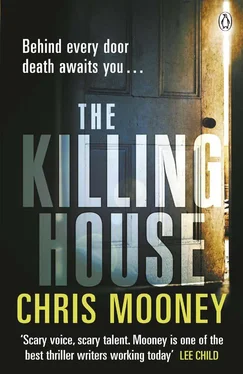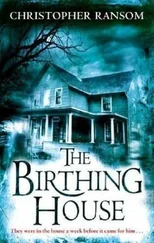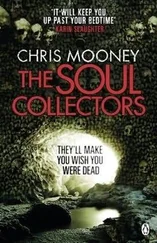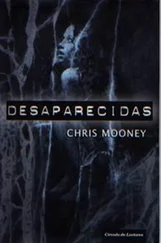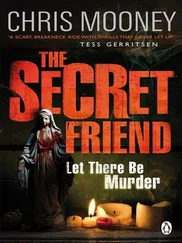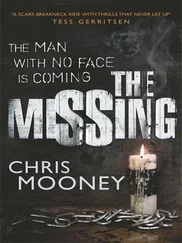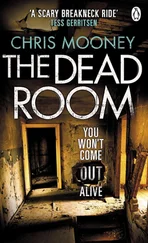Chris Mooney - The Killing House
Здесь есть возможность читать онлайн «Chris Mooney - The Killing House» весь текст электронной книги совершенно бесплатно (целиком полную версию без сокращений). В некоторых случаях можно слушать аудио, скачать через торрент в формате fb2 и присутствует краткое содержание. Жанр: Триллер, на английском языке. Описание произведения, (предисловие) а так же отзывы посетителей доступны на портале библиотеки ЛибКат.
- Название:The Killing House
- Автор:
- Жанр:
- Год:неизвестен
- ISBN:нет данных
- Рейтинг книги:5 / 5. Голосов: 1
-
Избранное:Добавить в избранное
- Отзывы:
-
Ваша оценка:
- 100
- 1
- 2
- 3
- 4
- 5
The Killing House: краткое содержание, описание и аннотация
Предлагаем к чтению аннотацию, описание, краткое содержание или предисловие (зависит от того, что написал сам автор книги «The Killing House»). Если вы не нашли необходимую информацию о книге — напишите в комментариях, мы постараемся отыскать её.
The Killing House — читать онлайн бесплатно полную книгу (весь текст) целиком
Ниже представлен текст книги, разбитый по страницам. Система сохранения места последней прочитанной страницы, позволяет с удобством читать онлайн бесплатно книгу «The Killing House», без необходимости каждый раз заново искать на чём Вы остановились. Поставьте закладку, и сможете в любой момент перейти на страницу, на которой закончили чтение.
Интервал:
Закладка:
Fletcher had parked on the top level, where there were fewer vehicles. He was alone, and he didn’t have to worry about security cameras. He opened the trunk and then rooted through his various cases, selecting the items he would need that night with great care.
After he finished, he climbed behind the wheel and started the car.
By the time Karim’s plane touched down at Chicago’s O’Hare Airport, M had traced the emails and website orders of Barry Johnson, Jon Riley and Jessie Foster all the way back to a residential home in Dickeyville, a small historic village located on the western edge of Baltimore City.
Fletcher had checked M’s work himself. There was no question in his mind about the validity of her information. It was rock-solid. Not wanting to waste any time, he left the plane, headed to his car and made the twelve-hour drive to Dickeyville. Karim had called once, to inform him of M’s additional research. The three Virginia men were fictitious; they were not residents of the state. The names of the deceased written on the order forms were also false. The death certificates had been forged.
The house in Dickeyville was a single-family, weather-beaten white Colonial. It had been built on the top of a sloping hill on half an acre of land. Trees, shrubs and a waist-high wall made of stone separated the Colonial from the neighbouring homes.
The lights were off, the attached garage empty. Fletcher searched the house using a monocular equipped with thermal imaging. The technology, developed by the British SAS, could pick up heat signatures through walls and floors.
The home was empty. Fletcher decided to wait until he had more information about the house. There was no urgency, no need to rush. He found a hotel located less than seven miles away, checked in and slept. In the morning he collected the supplies he needed for surveillance work.
Fletcher watched the Colonial for three long days. With the exception of the postman, no one approached the house. No one collected the mail. On the evening of his first night and under cover of darkness, he approached the mailbox and examined its contents. No bills or personal correspondence of any kind, just a meagre offering of promotional leaflets, catalogues and other assorted junk mail, all of it addressed to ‘current occupant’.
The news hadn’t surprised him. Karim, using M’s computer skills, had completed a preliminary investigation on the property. The historic Colonial, built in 1870, had last been sold to ABC Property Management, a limited liability corporation owned by Mark Sullivan, of Madison, Wisconsin. The LLC was listed on the utility and property tax bills, all of which were paid through an online banking account set up by a man named Rodger Callahan.
Subsequent data mining on Rodger Callahan and Mark Sullivan revealed an endless web of phone numbers and addresses all across the country that either did not exist, or that belonged to abandoned or foreclosed property. Karim pulled the LLC papers for ABC Property Management that had been filed with the Baltimore Chamber of Commerce. Its business address belonged to a gas station in Madison.
Karim had also pulled, scanned and emailed the Colonial’s architectural plans to Fletcher, who memorized the layout during the boring slog of watching the house.
Amongst Karim’s information was the technical specification of an important item: the home’s alarm system. According to the installation notes, the control panel had been placed inside the basement. There were two security alarm keypads: one mounted near the front door, the other in the master bedroom. Each keypad had a panic button that, when pressed, immediately dispatched police and fire units. Both keypads also came equipped with a speakerphone that allowed the homeowner to communicate directly with emergency personnel.
Tonight Fletcher would bypass the alarm system, enter the house and conduct a thorough search. Then he’d wait inside for someone to return — hopefully the shooter, the woman in the fur coat.
28
Dickeyville consisted of two main roads: Wetheredsville and Pickwick. The historic homes, such as the one at No. 5131 Wetheredsville, the house of Union soldier and Gettysburg flag-waver Billy Ware, had been preserved with remarkable care. Construction for new homes, as well as existing homes requiring modernization, had to meet strict guidelines set by the Dickeyville Community Association in order to maintain the village’s historic charm.
Fletcher took Pickwick and snaked his way across the quiet and deserted street. He reached the Colonial, surprised to find the downstairs windows lit. Someone had returned. The driveway was empty, which suggested that the homeowner had parked in the garage.
Fletcher drove past the house. When he reached the end of the street, he turned and made his way to Gwynns Falls. The area, with its numerous urban hiking and biking trails, offered a discreet and direct route to the back of the house.
Fifteen minutes later he drove across a parking lot of compacted dirt. Given the time of night and the cold weather, there were no other cars — or neighbouring homes. He could dress privately. He popped the trunk and stepped out of the car.
Fletcher wore a black, long-sleeved shirt over his bulletproof vest; all of his clothing was black. He took out his tactical belt, buckled it and strapped the nylon gun holster with its spare ammo clip to his thigh. He slipped on a pair of latex gloves, then exchanged his leather ones for a tactical brand made of Kevlar. The fingertips contained no extra material to get in the way of a trigger guard. He shut the trunk and locked the car.
Fletcher buttoned his coat as he made his way across the frozen ground. He didn’t need to use his flashlight. The peppering of bright stars provided enough ambient light for him to make out his surroundings. It disappeared once he stepped on to the main trail, but he could see well enough, and he knew where he was going, having already walked this same route twice. Several minutes later, he moved off the main trail and headed up a slope matted with dead leaves and pine needles, the silence occasionally punctuated by the cracks of dried twigs and the crunch of downed branches beneath his boots.
He studied the house using the monocular. Two glowing heat signatures, but only one was moving — the person walking through the ground-floor rooms. The second figure was upstairs and horizontal, lying in one of the first-floor bedrooms facing the garden.
Fletcher watched the figures for the good part of an hour. The person downstairs wandered freely. The person on the first floor didn’t move at all.
According to the schematics Karim had sent him, the alarm system was a standard wireless model that used passive infrared and six glass-break detectors. Fletcher suspected the detectors had been installed on the ground-floor windows. Most homeowners never bothered to install the detectors on the first-floor windows, as they were generally inaccessible.
The back porch had a shingled roof, and there were no lights on the first floor.
Fletcher tucked the monocular back inside his trousers pocket as he moved out from behind the tree, making his way to the garden’s picket fence.
29
Fletcher found the latch for the gate, opened it and walked into the garden. There was no need to run. The owner hadn’t installed sensor lights here. No one was watching him from the windows, and the neighbours couldn’t see him.
The only light came from the porch’s sliding glass door. He could see part of the kitchen. Once he reached the bottom of the wooden steps, he could make out the deep mahogany units and the black-and-white-chequered tile floor. He moved to the left side of the porch, grabbed the railing and pulled himself up. Made of pressure-treated wood, the railing was sturdy, and he climbed on to it, got his feet settled, and then stood and grabbed the edge of the porch roof, his broken ribs groaning in protest. They exploded in pain when he jumped and hoisted himself up. It took a moment for the pain to subside. Nothing worse than broken ribs. No treatment, nothing to do but suffer through the pain until they healed.
Читать дальшеИнтервал:
Закладка:
Похожие книги на «The Killing House»
Представляем Вашему вниманию похожие книги на «The Killing House» списком для выбора. Мы отобрали схожую по названию и смыслу литературу в надежде предоставить читателям больше вариантов отыскать новые, интересные, ещё непрочитанные произведения.
Обсуждение, отзывы о книге «The Killing House» и просто собственные мнения читателей. Оставьте ваши комментарии, напишите, что Вы думаете о произведении, его смысле или главных героях. Укажите что конкретно понравилось, а что нет, и почему Вы так считаете.
